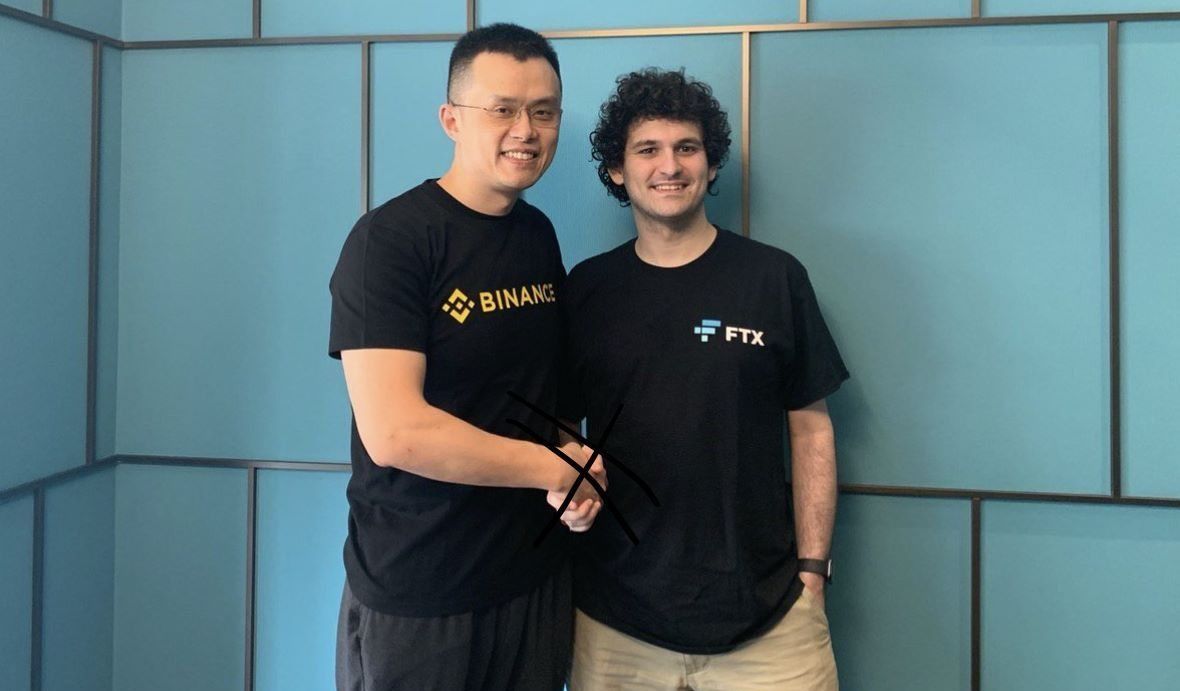Table of Contents
Roll up, roll up! 🎪 Get your ringside seats to the latest episode of "Bankman-Fried's Financial Fiasco"! Three days in, and we're still munching our popcorn. The show's hot, and here's the spicy tea, Blockhead-style.
It's been ten months since Sam Bankman-Fried's arrest. During this time, the prosecution received guilty pleas from Caroline Ellison (CEO of Alameda Research), Gary Wang (co-founder of FTX and Alameda Research), and Nishad Singh (director of engineering at FTX).
The big question: Did our main man SBF play some hocus-pocus with FTX customer funds, zapping them over to Alameda Research for personal financial gain? The defense chirped in, painting SBF as some kind of startup hero, building (and possibly crashing) his crypto plane mid-flight.
According to the defence, SBF acted in good faith and that it is not a crime "to be the CEO of a company that later files for bankruptcy.” Working at a startup is like “building a plane while you’re flying it,” the defense argued.
Ellison and Singh are yet to appear in court (expected in the coming days) but Wang testified against SBF on day 3. In December 2022, Wang told the court, "I was directed to and agreed to make certain changes to the platform's code. I executed those changes, which I knew would Alameda Research special privileges on the FTX platform."

Yesterday, Wang said, “We allowed Alameda to withdraw unlimited funds... [SBF handled] speaking to the media, lobbying, talking with investors. I just coded [...] in the end it was Sam's decision to make [regarding any disagreements]."
But wait! Cocoa bean trader Marc-Antoine Julliard was the first to testify against SBF, adding a sprinkle of emotion to the story, shedding tears for his vanished $100,000. A tale of lost trust and shattered dreams.
Julliard recounted how he felt “extremely anxious” on the day he attempted to withdraw his funds on the site. Julliard said he was under the impression that there were “strong financials behind the company" and is being used by the prosecution as the poster child to the jury to represent clients who thought their funds were safe.
Then, the plot thickens. Adam Yedidia, SBF's old MIT roomie, jumped in with some Bahamas-based gossip, hinting at secret chats and Signal shenanigans (he's also protected from prosecution based on his testimony). Auto-delete messages? For crypto transparency, huh? Also, anyone else keen for a paddle tennis match in a penthouse? Asking for a friend.
Yedidia, who worked for FTX for two months in 2017 and as a software developer in 2021 until FTX went bankrupt, said he resigned from FTX after it was revealed that “Alameda had used customer deposits to pay its loans." He claimed SBF instructed him to use Signal to discuss FTX's code.
“He told me to use Signal. He told the entire company. It also had auto-delete. [...] He said it [auto-delete] was all down-side to keep messages around. If regulators found things they didn’t like, it could be bad for the company," Yedidia said.
Yedidia also recounted how SBF told him after a round of paddle tennis at their Bahamian penthouse that, "We were bulletproof last year; we’re not bulletproof this year" when confronted about Alameda's $8 billion liability. "How long until we're bulletproof again?" Yedida asked SBF. "[He said] six months to three years. He looked nervous."

Paradigm co-founder Matthew Huang also testified, describing SBF as being "very resistant" to having investors join the FTX board of directors. Huang had conversed with SBF ahead of Paradigm making a $125 million investment in the exchange’s $900 million Series B funding in July 2021 but admitted to not conducting enough due diligence and relying too heavily on information from SBF.
He stated that SBF led him to believe Alameda was not receiving privileged treatment by FTX. When asked by the prosecution if his FTX investment would be different if he knew the truth, Huang replied, “Yes, it's generally understood that customer deposits are sacred.”
Note to investors: Maybe don’t put all your eggs in a shiny, charismatic basket without peeking inside first.
More sizzling testimonies are queued up for the next episodes. Stay glued, and while you're at it, click those Blockhead social links to keep your FOMO in check. 🍿🚀🎤
Elsewhere:
- Ledger Lays Off: Wallet Woes or Market Missteps? The cryptocurrency hardware wallet manufacturer has announced staff reductions as part of a restructuring effort. Said to affect 12% of its workforce, the move comes as the company faces increasing competition and challenges in the crypto hardware wallet market. But between you and me, someone should've maybe backed up their strategy onto a Nano S. Oops!
- Shariah Showdown: VARA's Halal Halt Stirs the Digital Desert: The highly anticipated Islamic Coin, created by the Haqq Association, is now chilling in the freezer, courtesy of Dubai's Virtual Assets Regulatory Authority (VARA). Seems like the dream of Shariah-compliant digital gold needs a bit more seasoning. The regulator noted the unauthorized issuance, marketing, and retail distribution of its ISLM tokens. Cryptopolitan uncovered a range of issues with the token and its issuance two weeks ago - read more here.
- Billions in the Wash: Feeling dirty? You're not alone. A record $7 billion in crypto just took a money laundering spin cycle, going all twirl with cross-chain services, according to a recent report by Elliptic. These services facilitate the movement of digital assets across different blockchains, creating challenges for authorities in tracking illicit activities. This record-high figure underscores the importance of robust anti-money laundering measures in the crypto industry. Stay soapy, crypto comrades.









